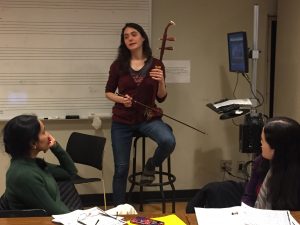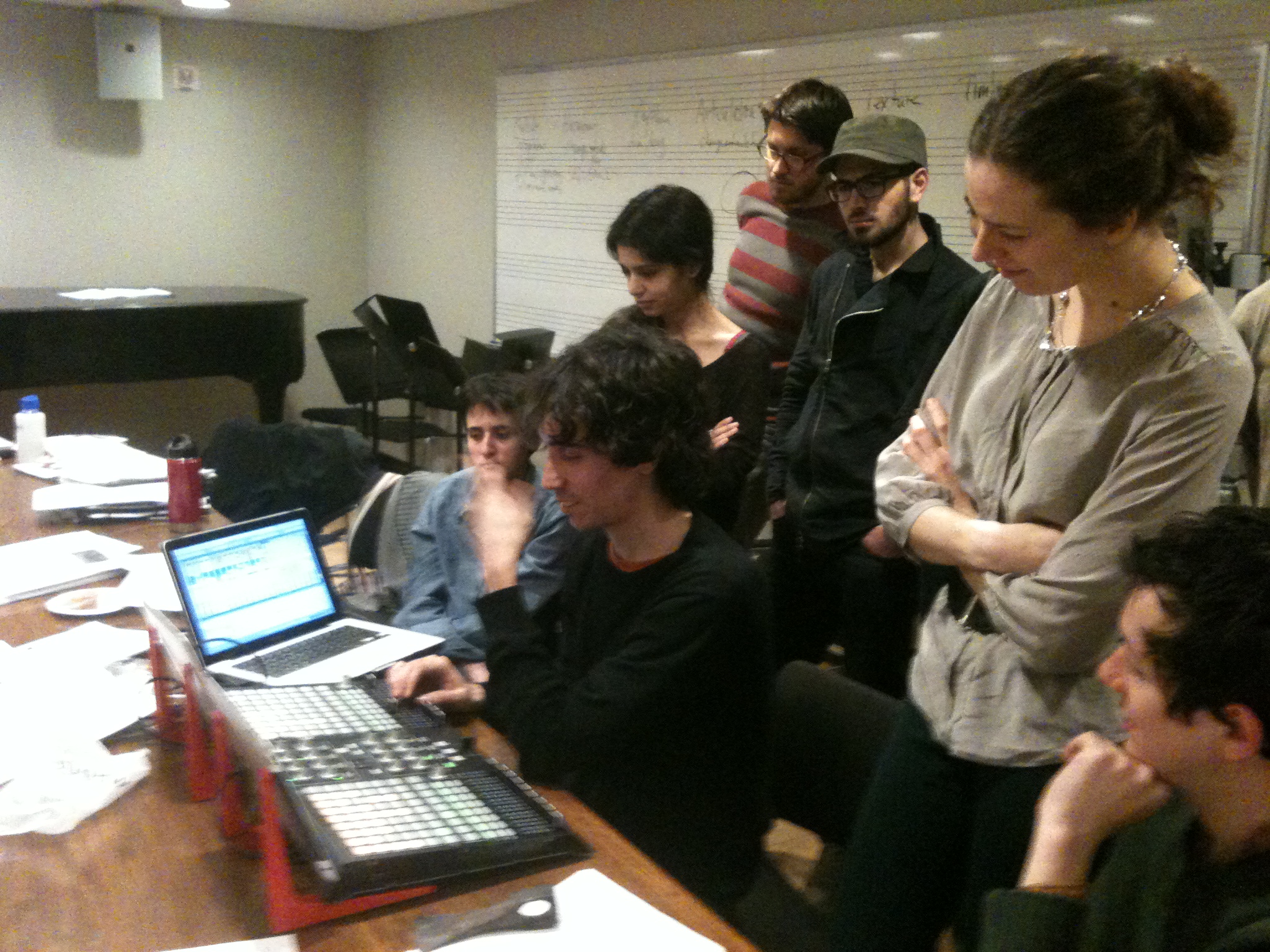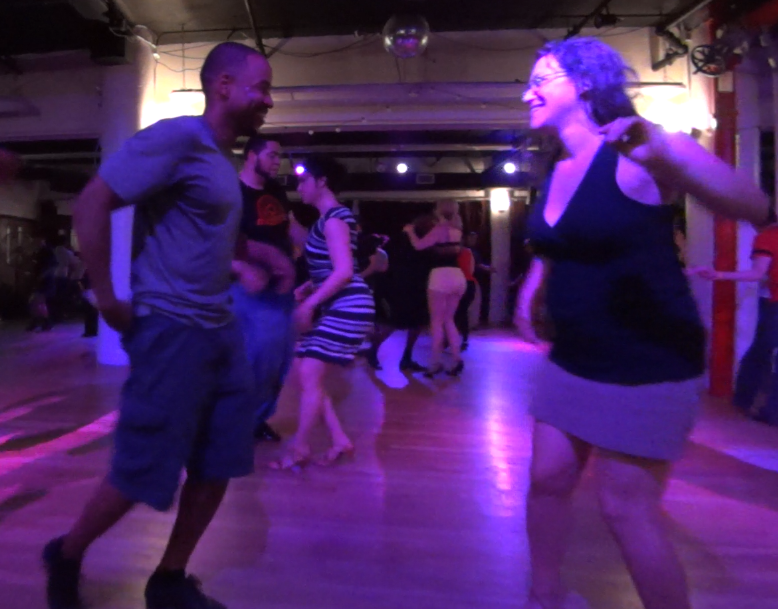The Graduate Center of The City University of New York offers a dynamic doctoral program in ethnomusicology, drawing on the rich resources of the Graduate Center, CUNY system, and New York City area as a whole. Ethnomusicology graduate students at the Graduate Center receive a thorough general background in the discipline, while enjoying considerable latitude in pursuing their own interests in accordance with the flexibility of the program and the diverse interests of the ethnomusicology faculty.
A special attraction of the Graduate Center is its location in the heart of New York City, with its extraordinarily rich musical and cultural life. Aside from being a center for classical music, opera, and music theater, New York is also renowned as the jazz capital of the world, as the single biggest center for Latin and Caribbean popular music, and is host to a thriving indie/alternative music scene. It is also host to a dazzling array of diverse immigrant communities, whose musical activities present unique research as well as performance opportunities for ethnomusicologists. Further, New York is home to such research institutions as the New York Public Library’s Schomberg Center for Research in Black Culture and Performing Arts Library, the YIVO Institute for Jewish Research, and Hunter College’s Center for Puerto Rican Studies.
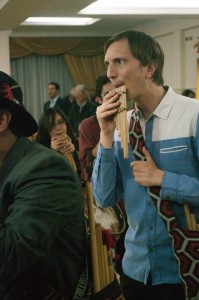
Joshua Katz-Rosene performs with the Bogotá-based panpipe troupe Zampoñas Urbanas at an event organized by the Bolivian embassy in Colombia to commemorate the 5th anniversary of Evo Morales’ presidency (Photo: Laura Molina Benavides).
Ethnomusicology students at the Graduate Center combine coursework in social theory, research methodologies, field methods, and transcription/analysis, with courses on specific topics and world areas, as well as in related disciplines such as anthropology, sociology, history, media studies, and religious studies. Students can work not only with the Graduate Center’s faculty, but also with faculty throughout the CUNY system, including the distinguished music departments of Queens College, Hunter College, City College, and Brooklyn College. Through the Inter-University Consortium, advanced students may also take courses at other schools in the New York area including Columbia University, New York University, The New School, Stony Brook University, and Fordham. Many students interact in various ways with faculty in the other music subdisciplines, with whom the Ethnomusicology Program has always enjoyed mutually supportive and enriching relations. The program is further enriched by the activities of the Foundation for Iberian Music, RILM, and the Music in Gotham project. The breadth of these resources, together with the flexibility of the CUNY program and the rich cultural offerings of New York City, have enabled the ethnomusicology program to attract students from a wide variety of countries and backgrounds.
All students in the Ethnomusicology Program are fully or partially funded. Once in the program, many students also receive internal grants for dissertation or pre-dissertation research. Particularly useful have been the numerous grants awarded by the Baisley Powell Elebash Endowment, which supports research on the musical life of New York City, and summer research grants provided by the Doctoral and Graduate Student Council. After their first year, most students teach undergraduate courses, from surveys of world music to music in American cultures,somewhere in the CUNY system. In doing so, they gain valuable teaching experience and often find themselves learning much from the ethnically diverse CUNY undergraduates as well.
Our numerous alumni have made major contributions to the field, and the Program has an impressive record of placing its graduates in academic positions. CUNY Ethnomusicology graduates currently hold professorial positions at Columbia University, University of North Carolina, Temple University, Bennington College, University of Vermont, the New School, University of New Haven, and the University of North Texas, as well as at John Jay College, Lehman College, York College, Gutman College, and Baruch College within the CUNY system.
Lastly, the Program’s students and faculty have always constituted a convivial and supportive community, whose members like to socialize, make music, and share their experiences.
For further information, please see the links in the drop-down menu above, or scroll down.
Faculty
Core faculty are responsible for the bulk of the curriculum. Consortial teaching faculty also teach seminars, and regularly serve on dissertation committees. Affiliated faculty are involved in other ways, including as resources for dissertation committees and independent study. Ethnomusicology students have also studied in various capacities with other members of the Graduate Center’s music faculty, including Mark Spicer and David Grubbs (popular music), Jeffrey Taylor (jazz studies), and Emily Wilbourne (gender studies).
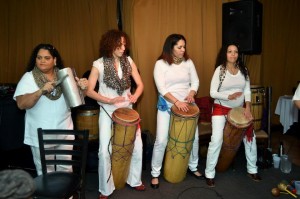
Manuela Arciniegas (second from right) with the Legacy Women performing Afro-Dominican palo
Core Ethnomusicology Faculty
Eliot Bates (Director, ethnomusicology program): music production; critical technology studies; music of Turkey
Anaar Desai-Stephens: voice, song competitions, music of India
Consortial Teaching Faculty
Agustina Checa (Lehman College): media circulation, materiality, economic ethnomusicology, Argentina
David Font-Navarrete (Lehman College): Afro-Atlantic cultural traditions, avant-garde art, cultural archives, Cuba
Benjamin Lapidus (John Jay College): Music of Cuba; Latin music in New York
Jonathan Shannon (Hunter College): Anthropology, Middle Eastern music, Mediterranean studies
Affiliated Faculty
Farzad Amoozegar (Hunter College): medical ethnomusicology, music in Iran
Barbara L. Hampton (Hunter College): Music of Africa
Antoni Pizá (Foundation for Iberian Music): Music of Spain
Emeritus faculty
Stephen Blum: music of West and Central Asia ethnomusicological analysis
Peter L. Manuel : Musics of India, the Caribbean, and Spain; world popular music
Jane Sugarman : Music of Southeastern Europe; gender studies; cultural theory
To read more, click here.
